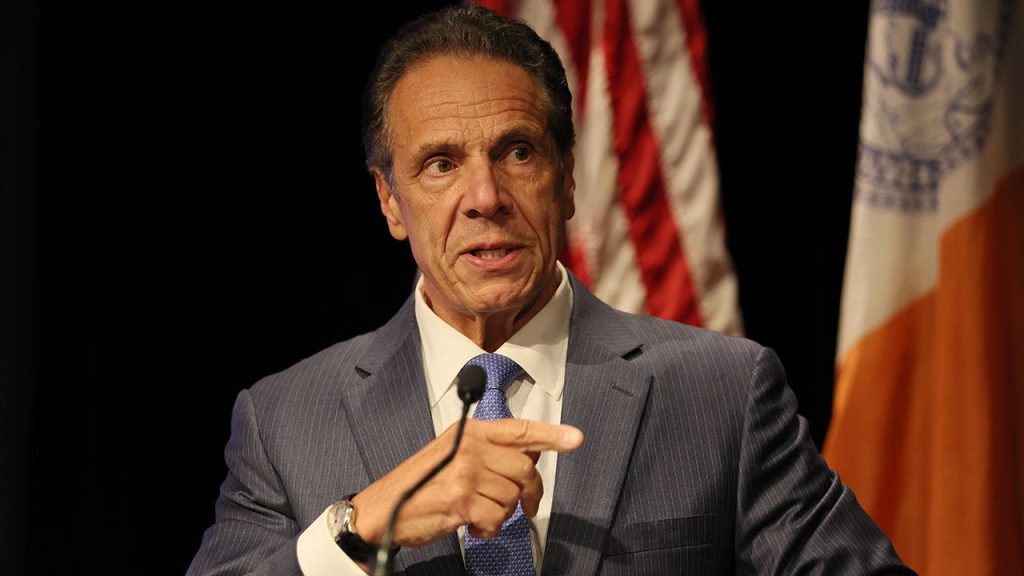Judge Rejects Cuomo’s Attempt to Prolong Legal Battle with Sexual Assault Accuser
In a significant blow to former New York Governor Andrew Cuomo’s efforts to rehabilitate his public image, a judge has firmly rejected his attempt to extend a taxpayer-funded legal battle with Brittany Commisso, a former aide who accused him of sexual assault. State Supreme Court Justice Denise Hartman did not mince words in her ruling, stating that Cuomo failed to provide any reasonable justification for why New York taxpayers should continue financing his use of civil litigation as a tool to resurrect his tarnished reputation. This decision comes just one month after New York State agreed to pay $450,000 to settle Commisso’s lawsuit, which alleged that Cuomo had sexually harassed and groped her during his time in office. The settlement marks a significant chapter in a scandal that ultimately led to Cuomo’s resignation in 2021.
The case against Cuomo extends beyond just Commisso’s allegations. An investigation conducted by New York Attorney General Letitia James determined that the former governor had sexually harassed at least eleven women during his tenure. These findings proved devastating to Cuomo’s political career, forcing his resignation in disgrace. Despite this, Cuomo has consistently maintained his innocence, and through his spokesman Rich Azzopardi, has claimed that Commisso’s allegations are false. According to Azzopardi, Commisso has been hiding text messages that would supposedly disprove her claims. Cuomo specifically asked the judge not to discontinue the lawsuit without first releasing these text messages, arguing they would vindicate him. However, Justice Hartman denied this motion and allowed Commisso to drop the lawsuit as requested.
Commisso’s allegations against Cuomo are serious and specific. She testified that in 2019, while taking a selfie in the executive mansion, Cuomo grabbed her buttocks. More disturbingly, she claimed that in 2020, he reached under her blouse and grabbed her breast. Commisso took the brave step of revealing her identity in a joint interview with “CBS This Morning” and the Albany Times Union shortly after becoming the first of Cuomo’s accusers to file a criminal complaint against him. The severity and specificity of these allegations contributed significantly to the public pressure that ultimately forced Cuomo from office, ending what had been one of the most powerful political careers in New York State.
Cuomo’s spokesman has characterized the settlement as Commisso accepting “a fraction of her initial multimillion dollar demand” and claimed she did so to avoid having her text messages scrutinized publicly. “Governor Cuomo will continue to fight for the release of all the evidence because it shows he didn’t sexually harass anyone and further discredits the AG’s political report,” Azzopardi stated, adding, “Release the evidence and let the public decide.” This aggressive stance reflects Cuomo’s ongoing strategy to challenge the allegations against him, portraying himself as the victim of a politically motivated investigation rather than accepting responsibility for the behavior described by multiple women who worked for him.
The former governor’s political ambitions haven’t been entirely extinguished by the scandal. Cuomo is currently running for mayor of New York City as an independent candidate after losing the Democratic primary to Zohran Mamdani by more than 12 percentage points. This mayoral bid represents an attempt at political redemption, though his defeat in the Democratic primary suggests that many voters remain unwilling to look past the allegations that drove him from the governor’s office. His decision to run as an independent rather than accept the primary results further indicates his unwillingness to bow to public sentiment or party preferences.
Justice Hartman’s ruling represents more than just a procedural decision in a legal case; it symbolizes a broader societal shift in how allegations of sexual misconduct by powerful men are handled. By refusing to allow Cuomo to extend litigation at taxpayer expense, the court is effectively saying that public resources should not be used to help rehabilitate the reputation of a former official accused of sexual misconduct. The judge’s unambiguous language suggests growing institutional impatience with powerful figures who attempt to use the legal system not for justice, but for image rehabilitation. For Commisso and the other women who came forward with allegations against Cuomo, the ruling may provide some measure of closure, even as the former governor continues to fight against the allegations that ended his gubernatorial career and potentially his political future.


